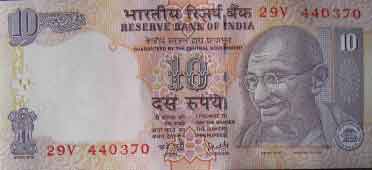Kerala’s Finance Minister Dr. T. M. Thomas Issac is an economist who is bold enough to embrace ideas. His latest Budget (for 2010-11) is an example for that. However, the problem is that he lacks an efficient government capable of turning his Budget proposals into reality.
The ideas in the Budget are not new. The campaign for environmental conservation was there for at least three decades now. The difference Dr. Issac makes is that he has shown willingness to promote the idea in a big way. The major proposal is to have a Rs. 10000 million green fund. (The onus of raising this fund largely falls on the next government. Current year’s allocation is just Rs. 1000 million). There are a slew of measures proposed including assistance to private individuals and organizations for conservation. The Finance Minister has put environmental conservation the agenda of the government in a big way.
There are also multi-pronged efforts to promote energy efficiency. This is an idea that was in the air for more than a decade— saving energy could be equivalent to building additional generation capacity. The State Electricity Board and the government had been late in embracing this by a decade. (This was the case with small hydel projects also. The Board woke up to the idea almost a decade late.) Better late than never, and Dr. Issac is making the plunge.
However, the LDF government is a non-functioning government. Mafias flourish and governance drifts. Dr. Issac alone could not put governance back on the rails. It should be admitted that he had been able to push certain things as far as his department is concerned and check tax evasion. (But gold merchants continue to evade tax. The compounding scheme brought by him helped to realise only Rs. 132 crores in taxes against target of Rs. 180 crores.). He has also been able to push Water Resources Minister N. K. Premachandran a bit. But that was that.
His plans to revise lease rent last year did not take off. Now, he is talking of legislation. The process may lag on as has happened with many a Bills proposed by the Law Reforms Commission. Several proposals in the current year’s budget for additional resources mobilization such as desilting of dam and collection of fines for reclamation of paddy fields did not yield results during the year. The Minister is now hoping that he would be able to do that this year. One time settlement for evaded stamp duty too would continue this year. The realization last year was just two per cent of the anticipated revenue. Naturally, the proposed infrastructure projects did not materialise as fast as hoped for. This time also, there are projects galore. However, most of them are unlikely to become a reality during the administration (or lack of it) of the present government.
Related: Subsidising Energy Efficiency


 The Kerala Assembly concluded its budget session this week without much in-depth discussions on the
The Kerala Assembly concluded its budget session this week without much in-depth discussions on the 

 The appreciation of rupee is hitting exports, especially software and agricultural exports from India. Despite that, there is little reason to check the appreciation of the rupee resulting from inherent strength of the Indian economy.
The appreciation of rupee is hitting exports, especially software and agricultural exports from India. Despite that, there is little reason to check the appreciation of the rupee resulting from inherent strength of the Indian economy.